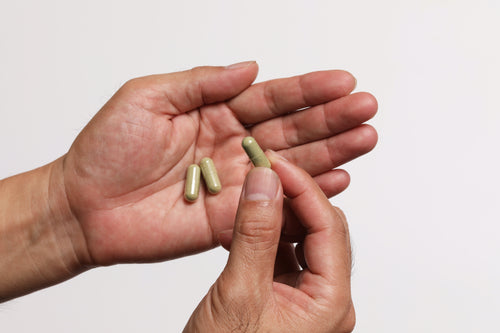Commonly Asked Questions
What are the side effects of fucoidan?
Although rare, some people can have very severe allergic reactions to brown algae extract. Generally, people who are allergic to plants such as soy may also be allergic to Fucoidan. Consult your doctor if you have allergies and are concerned that you could also be allergic to brown seaweed.
Since fucoidan may have blood-thinning properties, it may make it difficult for blood to clot if someone has an open wound. Talk to your doctor before making any changes to your diet, supplements, or medication.


Should I be concerned about the iodine content in fucoidan?
We are the first and only to provide both an Official Independent Radiation Test Report and an Official Seaweed Origin Declaration upon request with every order. These reports make it clear that we do not use any seaweed of Pacific origin in the making of our fucoidan products, and that they have no detectable levels of Cesium-137, Cesium-134, or Iodine-131 radiation contamination.
The recommended daily value for iodine is 150 mcg, though the U.S. National Academy of Sciences lists the maximum tolerable level of iodine intake as 1.1 mg (1100 mcg) of iodine per day. Iodine is necessary for the human body to function properly. Fucoidan Force and Fucoidan Phoenix provide a small dose of iodine on a daily basis.
How safe is fucoidan?
Fucoidan may be taken indefinitely to help promote good health, cell-to-cell communication, and tissue maintenance, with no side effects. Clinical testing confirms that high purity, certified organic fucoidan extracts are safe for human consumption.
To be sure you are getting the full benefits of fucoidan there are several things you need to know:
Strength – The percentage & amount of fucoidan found in the brown seaweed extract in each bottle.
Species – Type of seaweed used Mozuku, etc.
Origin – Ocean from which the seaweed is harvested.
Extraction Method – Hot or cold, water or solvents.
Support Ingredients – Types, amounts & purity.
Independent Third-Party Testing – This is critical because without it you cannot be certain about the actual amount of fucoidan you’re getting, or if the fucoidan is contaminated with radiation.


Is fucoidan a polysaccharide?
Fucoidan is a complex polysaccharide made up of fucose and other important elements that has the potential to modulate a healthy immune systems as well as increase your body’s overall health and well being. It exists in different kinds of brown seaweed which go through an extraction process, resulting in a powder, pill, or liquid extract.
Does fucoidan really work?
Although rare, some people can have very severe allergic reactions to brown algae extract. Generally, people who are allergic to plants such as soy may also be allergic to Fucoidan. Consult your doctor if you have allergies and are concerned that you could also be allergic to brown seaweed.
Since fucoidan may have blood-thinning properties, it may make it difficult for blood to clot if someone has an open wound. Talk to your doctor before making any changes to your diet, supplements, or medication.



